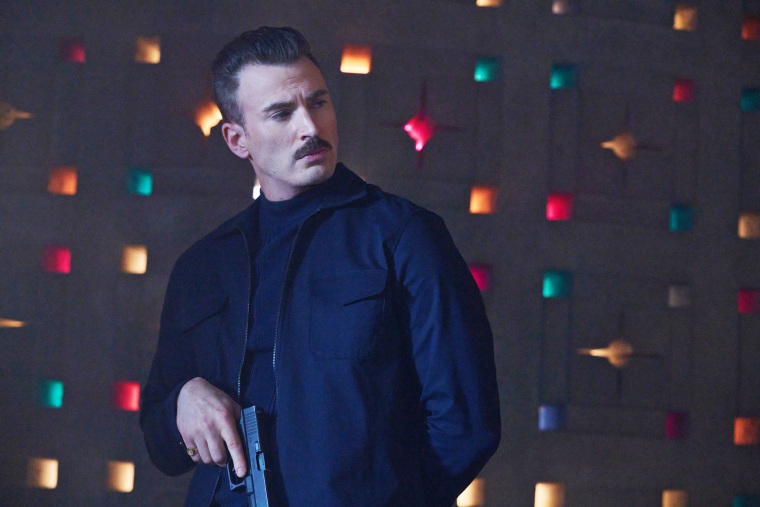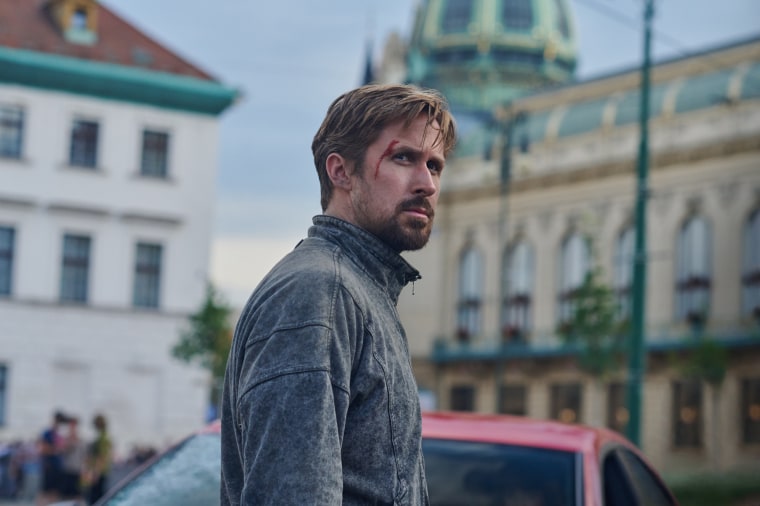Netflix urgently needs a splashy new film franchise to keep subscribers happy. Who better for the job than the guys who made two of the biggest hits in Hollywood history?
Anthony and Joe Russo, the directing brothers behind the Marvel epics “Avengers: Infinity War” and “Avengers: Endgame,” got an unprecedented $200 million from Netflix to make the frenetic action spectacle “The Gray Man,” starring Ryan Gosling and Chris Evans as CIA operatives chasing each other around the world.
Netflix executives hope “The Gray Man” kicks off a lucrative series of movies and shows that can help the streaming service rebound from grim quarterly earnings, reverse the loss of subscribers, and level the playing field with competitors like Disney+, with its lineup of Marvel and Star Wars offerings. (The company announces second-quarter earnings on Tuesday.)
In a joint interview on Zoom this month, the Russos discussed the high stakes around “The Gray Man” and weighed in on other industry hot topics, including the shaky economics of streaming and recent fretting about a “quality problem” inside the Marvel assembly line.
The conversation has been edited for length and clarity.
When you were gearing up to make “The Gray Man,” were there any films that were particularly inspirational — movies that were reference points or touchstones for you?
Joe Russo: The jumping-off points were “Die Hard” and “Lethal Weapon.” [John] McTiernan films of the ‘80s, movies that really embraced humor. In a lot of ways, we think of this as a comedy, although it’s a very dark comedy.
“Bullitt” taught us about sound design and how valuable sound design is to a car chase. “To Live and Die in L.A.” — chaos and action. We love the kinetic energy of it and the madness around it.
Without giving too much away, was there a particular action set piece in your film that was most challenging to shoot from a logistical perspective, especially during a pandemic?
Anthony Russo: Ugh, man.
Joe Russo: We took over an entire square in Prague for six weeks in the middle of summer. The square is really grass, so we had to build everything that you see, like the dais in the middle of the fountain. It connects to a tram sequence, and between the two, I think we had thousands of people shooting those sequences — three different [production] units running nonstop.
Anthony and I are very iterative when we shoot action, so we like to shoot for a few days, cut it together, look at what we have, assess it, make some choices, alter it, go back, reshoot it, look at it again.
Anthony Russo: Everything was made so much more difficult by Covid. It’s always hard to make a movie, but during Covid it’s like 20% harder. But the fact that Prague was empty and had no tourists gave us perhaps more control than we would have had otherwise.
It’s been reported that this is the most expensive Netflix movie to date, and I know the expectation is that it will launch a big franchise for the platform. When those are the stakes, do you feel extra pressure as filmmakers, especially at a time when there are worries about the financial stability of the company?
Anthony Russo: We conceived this movie to be a very ambitious action film, the way we built it from the ground up. When we brought the movie to Netflix, that was what we were offering — putting everything we could into an action film. They were fully supportive of the idea. They loved that we were thinking about a narrative universe and places this story could go other than this film.
They’ve committed to it financially and they have been nothing but supportive. As far as our relationship with Netflix on this movie, it’s just been smooth sailing and exactly what we all came together for. Any of those [financial] issues Netflix is having, we haven’t really seen them in our process.
In other interviews, you’ve talked about how the streaming world offers opportunities for filmmakers who are interested in making traditional two-hour movies based on original concepts. Do you guys have any anxiety now about instability in the wider streaming market, which affects all these companies?
Joe Russo: No, not really. [The success of streaming platforms] was inflated, obviously, due to the pandemic. Everyone was a home, and now as people step out of their homes, there’s going to be a rebalancing. But [corporations] are also making billions of dollars off their streaming platforms, so it’s not like this is a tragedy. It’s really just an equalization.
The things that we appreciate about digital distribution as filmmakers and human beings is that it’s done more for diversity in the last five years than Hollywood has in 100 years. I know a lot of that is driven by a desire to reach regional markets, but in doing that digital distribution has supported — with significant dollars — regional voices and regional talent better than the American theatrical circuit. That’s without question.
I also think that filmmakers working on smaller films can get a lot more money and a lot more freedom working at Netflix. When we made [the 2001 George Clooney caper movie] “Welcome to Collinwood,” it was an exceedingly difficult experience that took many years to get off the ground on a very small budget. But even with that small budget, we had an incredible amount of supervision. It was difficult.
Whereas at Netflix, they perceive themselves as a tech company, and that their job is to hire the artist to come in and create content. They then figure out where it goes on their platform. But they stay out of your hair. I think that’s critically important if you’re a younger filmmaker or a filmmaker who wants to make edgier, more experimental content.

You guys directed some of the most successful movies in the Marvel Cinematic Universe, and clearly the MCU remains astonishingly popular around the world. But you’ve probably seen the complaints about what some see as a drop-off in quality in the most recent wave of Marvel releases.
Do filmmakers like yourselves who have made Marvel films feel anxiety about maintaining quality in the MCU and making sure you’re not hitting a wall creatively? Can this franchise go on indefinitely?
Anthony Russo: Here’s the thing. The entire life of the MCU has seen ups and downs, there’s going to naturally be an ebb and flow to how people are feeling about it based on the latest offering. But I think — look, at the end of the day, they’re still being very ambitious in terms of how they approach the storytelling. They’re being experimental. They’re looking for new forms of expression to keep audiences excited and surprised. It still seems like they have a vital creative code and process that they’re pursuing, so I do believe there’s still a lot of hope for what’s possible in the MCU. We haven’t lost faith in it, that’s for sure.

